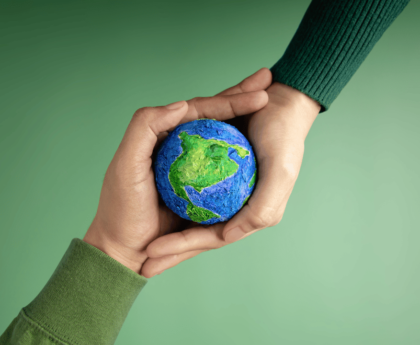Discover how climate change affects the global economy, from rising costs of disasters to shifts in industries, and learn about strategies for building climate resilience.
Climate change is no longer just an environmental challenge—it has become a significant economic issue. From rising costs due to extreme weather events to long-term disruptions in key industries, the economic impacts of climate change are widespread and intensifying. As global temperatures rise, the interconnectedness of economies means that even localized climate events can trigger far-reaching consequences.
The Economic Cost of Climate Change
1. Rising Costs of Natural Disasters
Climate change has increased the frequency and severity of natural disasters, including hurricanes, floods, and wildfires. These events lead to billions of dollars in damage annually.
- Case in Point: In 2023 alone, the United States experienced 23 weather and climate disasters, each causing damages of $1 billion or more.
- Global Perspective: The World Bank estimates that climate change could push up to 132 million people into poverty by 2030 due to disaster-related losses.
2. Agricultural Disruptions
Climate change is altering rainfall patterns, increasing temperatures, and intensifying droughts, directly impacting agricultural productivity.
- Economic Impact: Reduced crop yields lead to higher food prices, affecting both producers and consumers.
- Global Concern: Developing countries, heavily reliant on agriculture, face the dual challenge of economic instability and food insecurity.
3. Damage to Infrastructure
Rising sea levels and extreme weather are taking a toll on infrastructure, including roads, bridges, and buildings.
- Financial Burden: Repairing and reinforcing infrastructure to withstand climate impacts requires significant investment, often straining government budgets.
- Urban Risk: Coastal cities like Miami, New York, and Jakarta are particularly vulnerable, with projected costs running into trillions over the next decades.
Read More: The Role of Renewable Energy in Combatting Climate Change
Shifts in Global Industries
1. Energy Sector Transformation
The demand for renewable energy is reshaping the global energy landscape, creating opportunities but also challenges for fossil fuel-dependent economies.
- Winners: Countries investing in renewables are seeing job creation and economic growth.
- Losers: Regions reliant on coal and oil face economic downturns and unemployment as demand decreases.
2. Insurance Industry Struggles
The increasing unpredictability and severity of climate events are destabilizing the insurance industry.
- Higher Premiums: Insurers are raising rates or withdrawing coverage in high-risk areas.
- Economic Ripple: This impacts property markets and affordability for homeowners and businesses.
3. Tourism Decline in Vulnerable Regions
Rising temperatures, coral bleaching, and extreme weather are affecting tourism-dependent economies.
- Example: The Great Barrier Reef has suffered significant coral loss, impacting Australia’s multi-billion-dollar tourism industry.
- Long-Term Risk: Destinations reliant on snow or beaches face challenges as climate conditions shift.
Global Trade and Supply Chains
Climate change is really messing with how stuff gets from one place to another and how countries buy and sell things.
- Weather-Related Delays: Ports and transport hubs face closures due to extreme weather events, delaying goods.
- Crop Dependency: Countries reliant on imported food or raw materials face economic shocks when suppliers experience climate-induced crop failures.
- Shifting Trade Patterns: Melting Arctic ice may open new shipping routes, altering global trade dynamics but raising environmental concerns.
Adapting to Economic Impacts of Climate Change
Governments, industries, and communities must act to mitigate and adapt to the economic impacts of climate change.
1. Climate-Resilient Infrastructure
Investing in infrastructure that can withstand extreme weather is a critical step. This includes flood defenses, heat-resistant buildings, and climate-smart urban planning.
2. Diversifying Economies
Regions heavily reliant on fossil fuels or vulnerable industries should invest in diversifying their economies. Renewable energy, technology, and sustainable agriculture offer viable alternatives.
3. Insurance and Risk Management
Governments and insurers must collaborate to create risk-sharing mechanisms that ensure coverage for vulnerable populations without destabilizing markets.
4. International Cooperation
Climate change transcends borders, making international collaboration essential. Agreements like the Paris Accord aim to unify efforts in reducing emissions and providing financial aid to affected regions.
The Role of Businesses in Climate Action
Companies play a pivotal role in addressing climate change’s economic impacts. From adopting sustainable practices to investing in green technology, businesses can lead the transition to a low-carbon economy.
Key Steps Businesses Can Take:
- Reduce carbon footprints by being more energy-efficient and hopping on the renewable energy bandwagon.
- Invest in supply chain resilience to minimize climate-related disruptions.
- Reduce carbon footprints by being more energy-efficient and hopping on the renewable energy bandwagon.
Conclusion
Climate change is not just an environmental crisis—it is an economic reality that demands urgent action. By understanding its impacts and proactively investing in solutions, we can minimize the economic fallout while building a more resilient and sustainable global economy. Collaborative efforts from governments, businesses, and individuals are essential to navigate this unprecedented challenge and secure a stable future.





